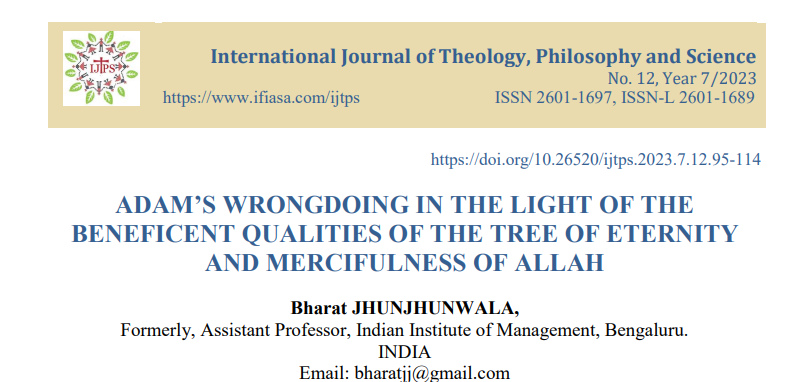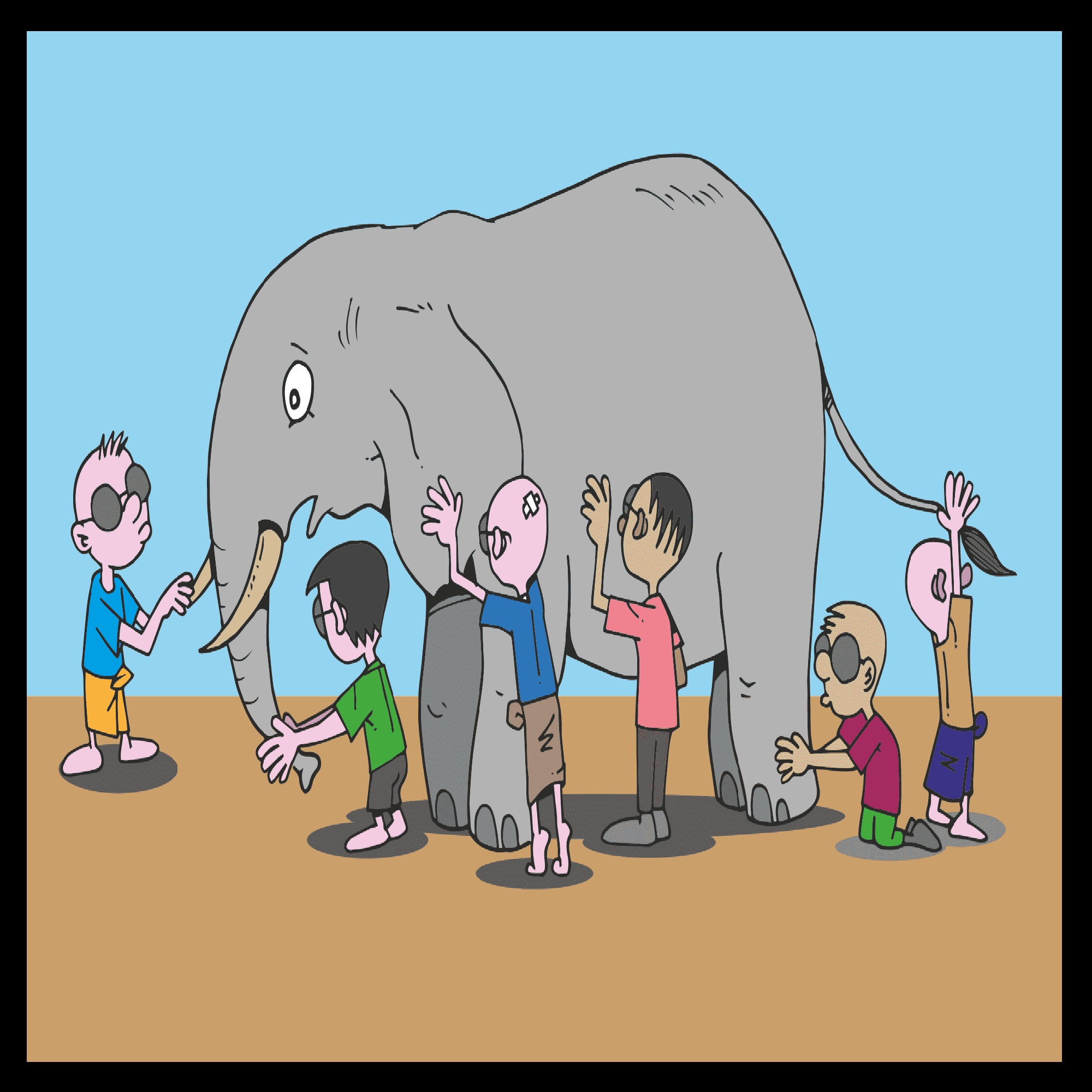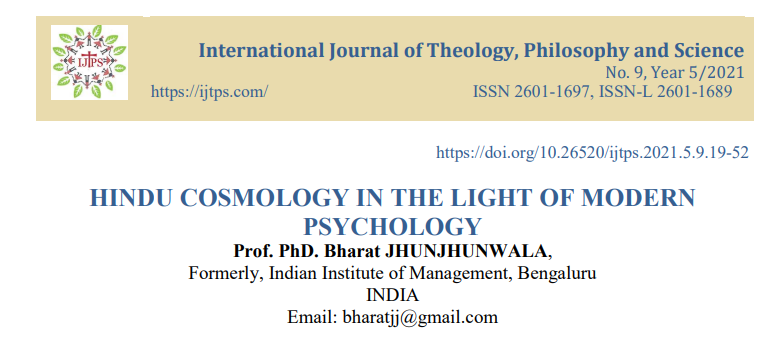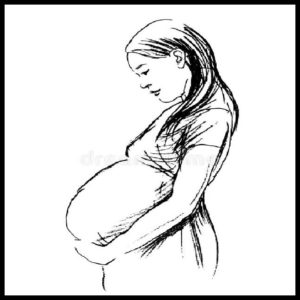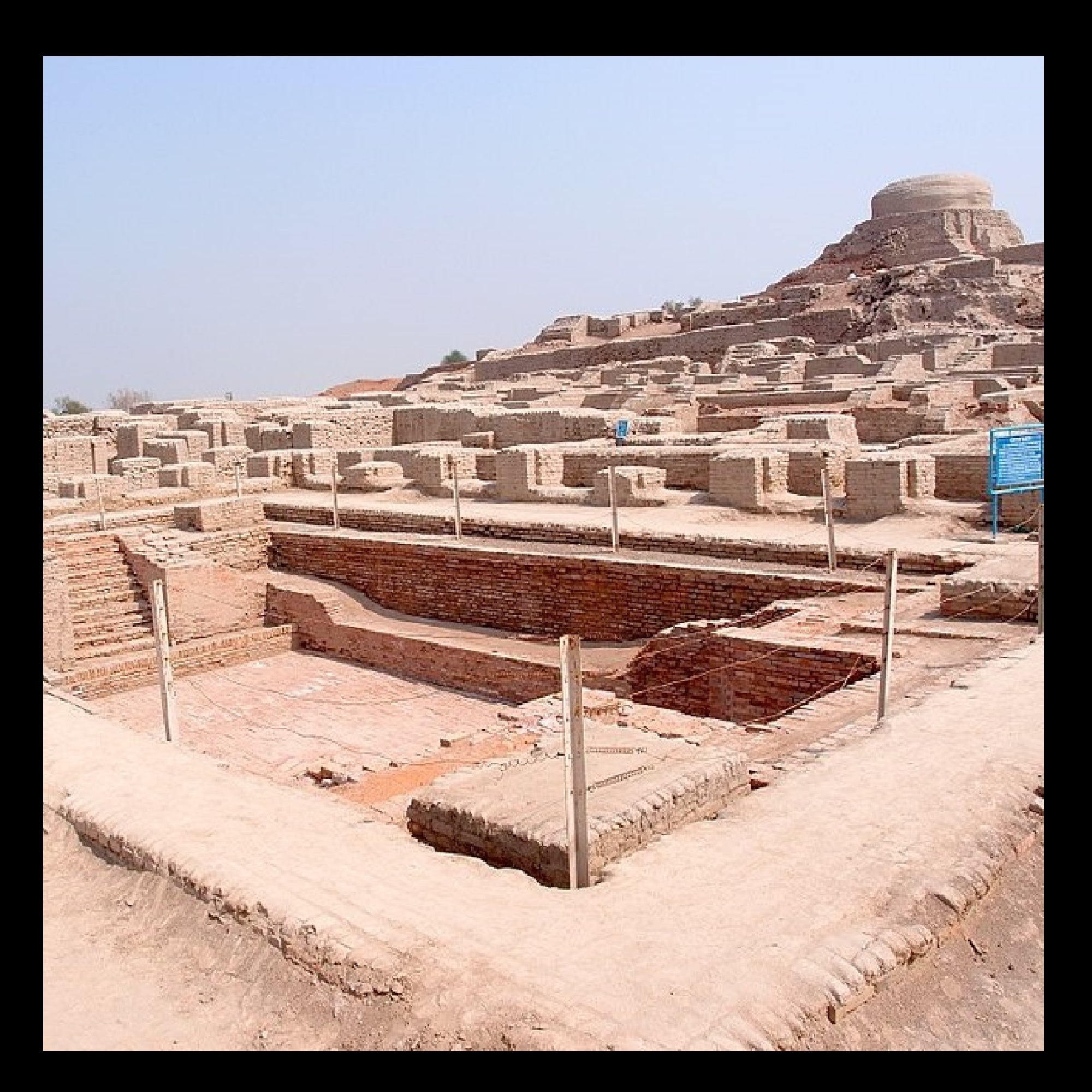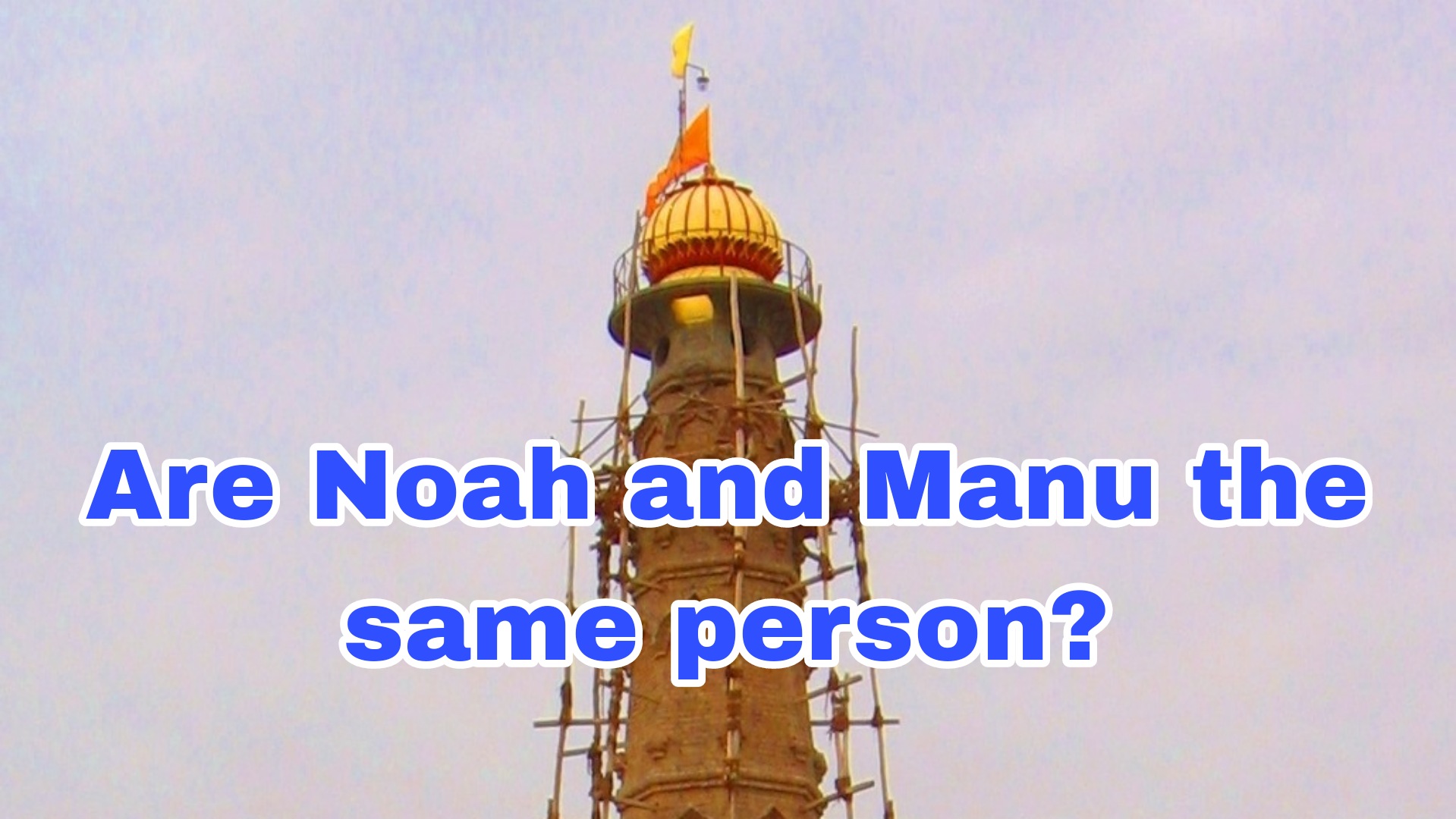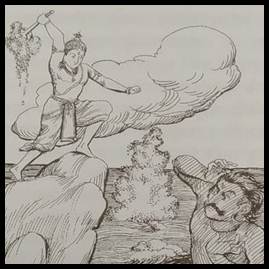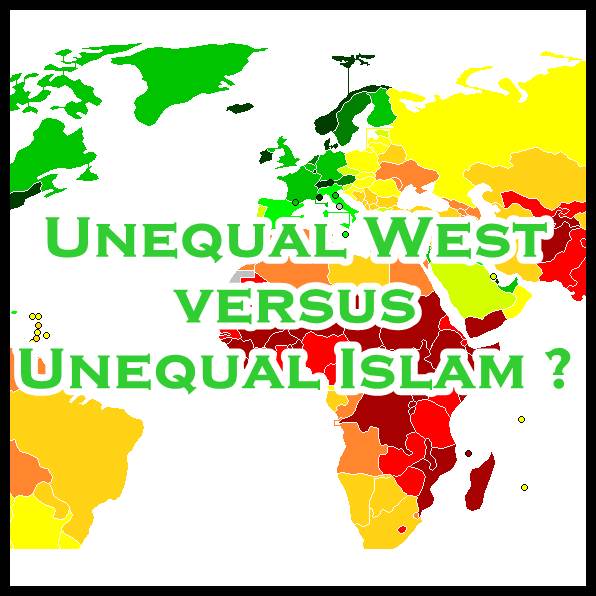Sumerian Civilization| Enuma Elish | Vayu Purana| Bible| Atrahasis
It is usually believed that the origins of the Biblical stories of creation lie in the Sumerian Civilization of which we have one major legend call Enuma Elish. It has been suggested that the Biblical narrative of creation and that of Enuma Elish are parallel. In this post we suggest a third possibility of Vayu Purana of the Hindu texts.
 Do the origins of the Biblical story of creation lie in the Sumerian Civilization?
Do the origins of the Biblical story of creation lie in the Sumerian Civilization?
Along with Enuma Elish we will also rely on the Sumeric legend Atrahasis and the description given by Babylonian Historian Berossus. We will compare the Biblical descriptions with Enuma Elish and the Vayu Purana on 16 points.
Bible and Enuma Elish have 7 distinctions while Bible and Vayu Purana have only 2 distinctions?
Bible| Elohim |Yahweh| Enuma Elish| Vayu Purana| Brahman |Brahma
The first point is that the Bible gives two names of God “Elohim” and “Yahweh.” Enuma Elish has no concept of an all-pervasive or an all- encompassing God. It starts with lesser gods. The Vayu Purana, on the other hand, makes a clear distinction between Brahman, which is the all-pervasive God, and Brahma which is the god created by Brahman for the purpose of creation. Therefore, the Bible is exactly parallel to Vayu Purana in that there are two names for God in the Bible and there are two names for God in the Vayu Purana.
The creation of the heavens and the earth is parallel in the Bible, Enuma Elish?
God |Heavens |Earth| Bible| Enuma Elish |Vayu Purana
The second point is that the Bible says “In the beginning God created the heavens and the earth.” So, the creative power of One God is clearly stated. In Enuma Elish it is said “when the heavens above did not exist” and “earth beneath have not come into being–at that point the God started creating.” This indicates that there was a period when the heavens and earth had not been created hence consider this to be parallel to the Bible. In Vayu Purana, in distinction, there no reference to creation of the heavens. There is only reference to creation of the earth. Therefore, on this point, the Bible is parallel to Enuma Elish and distinct from the Vayu Purana.
The Bible saying that the earth was without shape and empty is parallel to the Vayu Purana?
Bible | Earth| Empty | Enuma Elish |Vayu Purana | Water
The third point is that the Bible says that the earth was without shape and empty. There is no such description in the Enuma Elish whereas in the Vayu Purana 8.2 it says the entire earth was covered with water. So, the Bible is parallel to Vayu Purana on this point.
Bible | God | Water | Mingling| Enuma Elish | Apsu| Tiamat |Vayu Purana | Brahma
The Fourth point is the Bible says the spirit of God was moving over the surface of water. The Enuma Elish only says that there was Apsu and Tiamat and they mingled their waters for creation. So, mingling of water can be considered as parallel to the Bible. The Vayu Purana explicitly says that Brahma “kept roaming here and there.” This is exactly parallel to the spirit of God moving over the water.
Bible | God | Water | Firmament | Enuma Elish | Apsu| Tiamat |Vayu Purana | Brahma
The Fifth point is that the Bible says God divided the waters by a firmament. Once again, as mentioned above, Enuma Elish says that Apsu and Tiamat mingled their waters. Therefore, while the Bible talks about division of waters, Enuma Elish talks about mingling of the waters. The interplay of two waters is common in both the cases. Therefore, we consider this to be parallel. The Vayu Purana does not talk about any division of waters. Therefore, we consider Vayu Purana to be distinct on this point.
The creation of the earth after water is parallel in the Bible, Enuma Elish and Vayu Purana?
Bible | Water | Sky | Enuma Elish | Meadow |Vayu Purana | Lord Varaha
The sixth point is that the Bible says “let the water under the sky be gathered to once place and let dry ground appear.” Enuma Elish also says “before the meadow land had coalesced and reed bed was found…” Therefore, there is mention of a time where the land had not appeared in both the texts. The Vayu Purana says that lord Varaha entered into that undifferentiated water and took out the earth and placed it above. Therefore, on this point all the three texts are the parallel.
The creation of the Moon, Sun and planets is parallel in the Bible, Enuma Elish and Vayu Purana?
Bible | Separation | Day | Night | Enuma Elish | Berossus |Vayu Purana 8.16 | Moon | Sun
The seventh point is that Bible tells of the separation of day from the night. In parallel Berossus says, “Bel also created the stars and sun and the moon and the five planets.” This is parallel. Similarly, the Vayu Purana 8.16 says Brahma created moon, sun and other planets. Both are parallel to the Bible.
Creation of mankind is parallel in Bible, Enuma Elish and Vayu Purana?
Bible | God’s creation | Humankind | Genesis 1.26| Enuma Elish | Kingu |Vayu Purana| Brahma|1000 couples
The eighth point is that the Bible talks about God’s creation of humankind in Genesis 1.26. In parallel, Enuma Elish says that the “gods bound Kingu, severed his blood vessels and from his blood they created mankind.” The Vayu Purana says the Brahma created four sets of 1000 couples each from his mouth, chest, thighs and feet. Therefore, the creation of mankind is parallel in all the three narratives.
That the land was barren and fruitless is parallel in Bible, Enuma Elish and Vayu Purana?
Bible | Man | Cultivate | Ground| Berossus | Barren | Fruitless |Vayu Purana| Brahma
The ninth point is that at a certain point of time, the Bible says there was no man to cultivate the ground. In parallel, Berossus says that the land was barren and fruitless and then gods created man. In parallel, the Vayu Purana says all though Brahma had made 1000 couples, “but for some reason those people did not engage in the path directed.” This “not engaging in the path directed” could be parallel to the Bible saying that there was not man to cultivate the ground.
Creation of man was from dust in the Bible and from darkness in the Vayu Purana are parallel?
Bible | Adam | Soil | Negativity | Enuma Elish | |Vayu Purana| Darkness
The tenth point is that the Bible indicates some role for the lower qualities of man. It says God formed Adam from the soil of the ground. The word for “soil” is “Aphar.” It also means dust, dirt, ashes, dusty, debris, dirt covered and grey. There is a sense of negativity about this word “aphar” from which man was created. There is no reference to a lower quality in the Enuma Elish.
On the other hand, in the Vayu Purana it is said that Brahma had three qualities goodness, passion and darkness. Brahma divided his body of darkness into two parts which became man and woman. The creation was from dust in the Bible and from darkness in the Vayu Purana. We consider these to be parallel.
The description of the rivers is parallel in the Bible and Vayu Purana?
Bible | Garden of Eden | Enuma Elish| Rivers | Euphrates |Tigris |Vayu Purana| Mount Meru
The eleventh point is that the Bible talks about four rivers flowing from the Garden of Eden. The Enuma Elish tells of only two rivers. It says that the Euphrates and Tigris flow from the two eyes of Tiamat. There is reference to only two rivers. In comparison, the Vayu Purana explicitly says that Brahma lived on mount Meru when one sky flowing river fell on four mountaintops and began to flow dividing into four rivers. Therefore, the Biblical and the Vayu Purana descriptions are parallel.
Division of the body of man into man and woman is parallel in the Bible and Vayu Purana?
Bible | Creation | Man| Woman | Atrahasis | Goddess Mami | Vayu Purana
The twelfth point is that the Bible says that God took a rib from man’s body and created a woman out of it. There is a reference to splitting of man’s body. In Atrahasis it is said that womb goddess Mami created 7 males and 7 females. The creation of male and female is attested.
In the Vayu Purana on the other hand, it is explicitly said that Brahma divided his body of darkness into two parts of which one became man and another woman. Therefore, the division of body is exactly parallel in the Bible and in the Vayu Purana although the creation of male and female is parallel in all the three texts.
God cursed woman to bring forth (large numbers of) children in pain?
Bible | God cursed | Woman | Children | Pain | Vayu Purana| Monthly periods
The thirteenth point is God cursed woman to bring forth children in pain. There is no such mention in the Enuma Elish. On the other hand, the Vayu Purana says that at one time women use to give birth to one child towards the end of their life. Later they began to have monthly periods and started to give birth to more numbers of children. The procreation of larger numbers of children could be parallel to bringing forth children in pain and we consider this to be parallel to the Bible.
Bible | Adam | Enuma Elish | Enbilulu | Vayu Purana| Cultivation| Ploughing
The fourteenth point is that the Bible tells that Adam was sent to till the ground. The Enuma Elish says that Enbilulu provides pasturage and keeps the watering in good condition, gives weeds and brings grain into being. This is parallel to the Bible. In the same way, Vayu Purana says that those people started cultivation by ploughing. These are parallel in the three texts.
Bible | Adam and Eve | Enuma Elish | Clothes | Trees | Vayu Purana
The fifteenth point is that God made tunics of skin and clothed Adam and Eve. There is no such description in the Enuma Elish. In the Vayu Purana it is said that people began to obtain clothes from the trees to save themselves from cold and heat. The making of clothes is parallel between the Bible and the Vayu Purana.
Bible | Garden of Eden| Mount Moriah | Sumeric Civilization | Enuma Elish | Vayu Purana |Meru Mountain
The sixteenth and last point is that a secondary Biblical text says that Adam went and dwelt on Mount Moriah after being banished from the Garden of Eden. In parallel, the name “Sumer” of the Sumeric Civilization has built into it the syllables “s,” “m” and “r.” In parallel the Vayu Purana says that Brahma use to live on upper part of the Meru Mountain. The names Moriah, Sumer and Meru are parallel.
Now we can summarize our discussion. Out of the sixteen points, the Bible and Vayu Purana are distinct on two points. One, there is no reference to the creation of heavens; and two, there is no description of division of the waters by firmament. On the other hand there are seven points of distinction between the Bible and the Enuma Elish.
One, Bible has two names for God while Enuma Elish does not have two names for God. Two, the Bible says that the Earth was without shape and empty. The Enuma Elish does not mention any such thing. Three, the Bible talks about creation of man from dust. The Enuma Elish is silent on this. Four, the Bible talks about four rivers. Enuma Elish talks about only two rivers.
Five, the Bible talks about splitting of man’s body into man and woman. The Enuma Elish only talks about creation of male and female, not of splitting. Six, the Bible tells of God cursing the woman to bring forth children in pain. The Enuma Elish is silent on this. Seven, the Bible tells of God clothing Adam and Eve. The Enuma Elish is silent on this.
If we consider the overall picture, we find that there is much greater concordance between the Bible and Vayu Purana with only two points of distinction whereas there is a much lesser concordance between the Bible and Enuma Elish with seven points of distinction. Therefore, there is a case for us to look at whether the origins of the Biblical narrative of creation could be in the Indus Valley rather than in Sumer.
Further, the historicity of the Biblical narrative arises, in part, because there is very little extra Biblical evidence to support it. Here in the Vayu Purana, we are getting that extra Biblical evidence. The Biblical narrative of creation becomes more credible if we read in parallel with the Hindu narrative.

